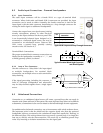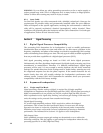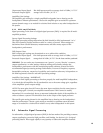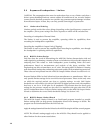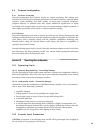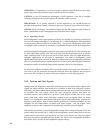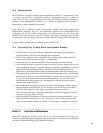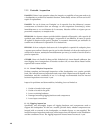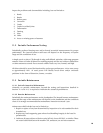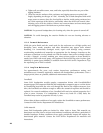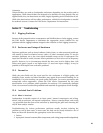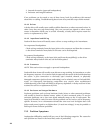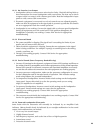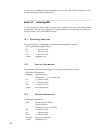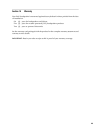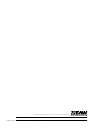
4. Tighten all accessible screws, nuts, and bolts, especially those that are part of the
rigging hardware.
5. Clean the exterior surfaces of the enclosure and rigging system as required, this
largely depending on the type of "dirt". Normally, use a cloth dampened with mild
soapy water to remove dust, dirt, food spills or similar. Avoid getting moisture into
any of the openings of the cabinet, particularly where the drivers are located. After
cleaning, use a clean dry cloth to remove any excess moisture and treat metal parts
and the rigging system with lubricant to prevent rusting.
CAUTION: For powered loudspeakers, do cleaning only when the power is turned off.
CAUTION: To avoid damaging the exterior finishes do not use cleaning solvents or
abrasives.
11.3.3 Cosmetic Maintenance
While the paint finish and the wood used for the enclosures are of high quality and
durability, mars, marks, scratches, and other blemishes may appear from normal
handling. For cosmetically damaged wood, repair such damage using common
woodworking methods and materials as appropriate for the damage. Scratches on the
enclosure or hardware can be painted over with an outdoor latex paint or simply colored
in with a "Sharpie" or artist's marking pen. More serious gouges or dents should be
sanded out, filled with wood putty, and repainted. Black touch-up paint in pints (part
#810050) or quarts (part #810049) is available from the EAW Service Department. Tips
for repainting are on EAW's website.
11.3.4 Long Term Maintenance
For approximately five years, only routine inspections, performance testing, and
maintenance are normally required to maintain the loudspeaker's performance. Over a
longer period, there are possible, additional maintenance issues:
Ferrofluid:
Some EAW loudspeaker models employ compression drivers with Ferrofluid-filled
magnetic gaps. This magnetic fluid fills the loudspeaker's magnetic gap to cool the driver
by transferring heat from the voice coil through the fluid to the magnet structure. Over
time, the Ferrofluid can thicken enough to affect the acoustical response and should be
replaced. For normal conditions of use, Ferrofluid will retain its original properties for 6
years or more. However, if a loudspeaker is driven very hard on a daily basis, the
Ferrofluid may retain its properties for only 2 years.
When either of these conditions of use apply, replace the Ferrofluid to restore performance.
Contact the EAW Service Department for instructions.
Grille Material:
Some EAW loudspeaker grilles are backed by either cloth or foam. This material can
deteriorate over time due to various environmental conditions and effects, particularly if
installed outdoors. If these conditions of use apply, periodically inspect and replace any
deteriorated grille material. Contact the EAW Service Department for materials and
instructions.
20



